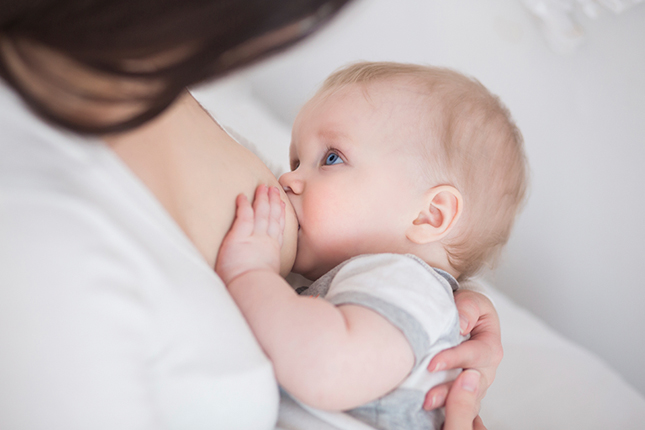Micro- what? The microbiome is something scientists and doctors are learning more about everyday. The microbiome plays a big role in our overall health and well-being. This is true for even the tiniest of us, newborn babies. I had the chance to talk with Toni Harman, director and producer of the film, MicroBirth. Find out exactly what the microbiome is and how it plays a role in your baby’s overall health, especially at the time of birth.
What is the human microbiome?
The human microbiome is the community of trillions of microorganisms that live on and in us, including bacteria, fungi, viruses, archaea and protozoa. We have a mutually beneficial relationship with the microorganisms living on and in us; we give them a home and they help us with digestion, metabolism and are integral to our immune system.
Why is it so important to consider the microbiome at the time of birth?
During childbirth, there’s an invisible microscopic process happening that kickstarts the baby’s immune system. This is the main seeding event for founding the infant microbiome. This happens in the narrow window that surrounds birth.
Tell us about the film, “MicroBirth”. What inspired you to make this film?
After our last film “Freedom For Birth” explored the politics of childbirth, we wanted to make a film looking at the science, focusing specifically on the invisible microscopic events happening before, during and after childbirth. When we started researching, suddenly we realised that this was a big topic with implications potentially for the future health of our entire species.
“Microbirth” has won multiple top awards at science film festivals and it’s been broadcast around the world. It’s also given birth to a book “Your Baby’s Microbiome
” and recently it’s spawned “Microbirth School”, an educational platform providing free webinars and online courses to explain the importance of the infant microbiome.
Are there ways to support the baby’s microbiome during pregnancy?
It’s really important that a pregnant mother’s microbiome is in the best possible condition before birth. This is because the mother’s bacteria will be transferred to her baby during vaginal birth and through breastfeeding. These bacteria will help optimally train the infant immune system protecting the baby across a whole lifetime.
Science is pointing to various “microbiome-friendly” choices including avoiding processed foods whilst eating a diverse range of fruit and vegetables, high-fiber foods and fermented foods. Plus a sensible approach to anti-bacterial products and antibiotics.
How can women best prepare for birth with their baby’s health and microbiome in mind?
It’s about being aware that a mother transfers her own vaginal and gut bacteria to her baby during vaginal birth. Then the bacteria transferred from the mother are fed in the infant gut by the special sugars in breast milk. This invisible microscopic but critical process helps optimally train the baby’s immune system.
Are there ways to support the baby’s microbiome when they are born via C-section?
Birth doesn’t always go as planned and C-sections are sometimes necessary. However, after a baby is born, regardless of vaginal or C-section, having immediate skin-to-skin contact and support for exclusive breastfeeding are both extremely helpful in the developing infant microbiome.
Research is currently underway looking at the possible benefits of giving babies born by C-section a specific type of bacteria (Bifidobacterium infantis) that quickly colonise the infant gut. Other research is looking at “swab-seeding”, a technique where a swab coated in the mother’s vaginal bacteria is wiped over the infant’s mouth, face and body soon after the baby is born by C-section. Preliminary research shows this could potentially help partially restore the infant microbiome, but this is not yet a recognized medical procedure.
What is biggest piece of advice that you would give to a pregnant woman?
For pregnant mothers to be aware of the benefits of vaginal birth (when possible), and for vaginal and C-section births – immediate skin-to-skin contact, plus exclusive breastfeeding involve invisible microscopic processes that could bring lifelong health benefits to the baby.
How and where can we learn more about the microbiome and Microbirth?
MICROBIRTH (award-winning documentary, 60 mins, 2014)
MICROBIRTH SCHOOL (free webinars and online courses)
YOUR BABY’S MICROBIOME (book, Chelsea Green Publishing, 2017)
